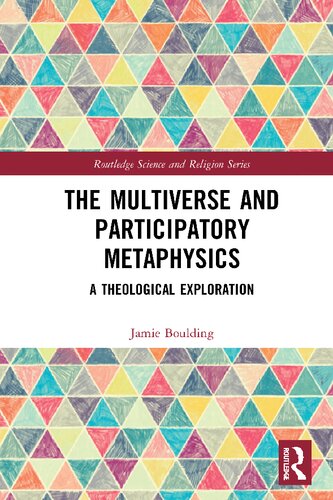

Most ebook files are in PDF format, so you can easily read them using various software such as Foxit Reader or directly on the Google Chrome browser.
Some ebook files are released by publishers in other formats such as .awz, .mobi, .epub, .fb2, etc. You may need to install specific software to read these formats on mobile/PC, such as Calibre.
Please read the tutorial at this link: https://ebookbell.com/faq
We offer FREE conversion to the popular formats you request; however, this may take some time. Therefore, right after payment, please email us, and we will try to provide the service as quickly as possible.
For some exceptional file formats or broken links (if any), please refrain from opening any disputes. Instead, email us first, and we will try to assist within a maximum of 6 hours.
EbookBell Team

4.3
8 reviewsThis book offers a new theological approach to the multiverse hypothesis. With a distinctive methodology, it shows that participatory metaphysics from ancient and medieval sources represents a fertile theological ground on which to grapple with contemporary ideas of the multiverse.
There are three key thinkers and themes discussed in the book: Plato and cosmic multiplicity, Aquinas and cosmic diversity, and Nicholas of Cusa and cosmic infinity. Their insights are brought into interaction with a diverse range of contemporary theological, philosophical, and scientific figures to demonstrate that a participatory account of the relationship between God and creation leads to a greater continuity between theology and the multiverse proposal in modern cosmology. This is in contrast to existing work on the subject, which often assumes that the two are in conflict.
By offering a fresh way to engage theologically with multiverse theory, this book will be a unique resource for any scholar of Religion and Science, Theology, Metaphysics, and Cosmology.